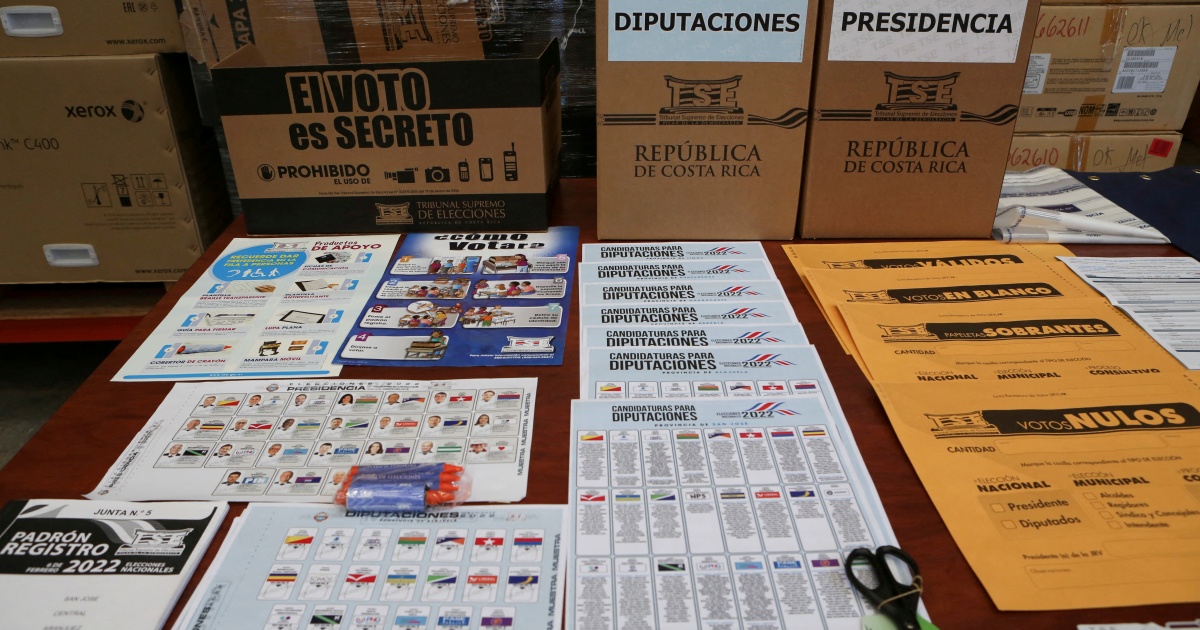Costa Rica votes in presidential election with no clear favourite
Costa Ricans are set to vote for a new president in elections that have yet to see a clear favourite emerge among the 25 candidates and will be held amid fears of a low turnout because of a surge in COVID-19 cases.
Costa Ricans will also choose a new National Assembly in Sunday’s elections, which take place days after the country’s top prosecutor filed papers seeking to lift outgoing President Carlos Alvarado’s immunity so he can face charges related to the collection of personal information on citizens. He is not eligible to run again.
Often referred to as Central America’s “happiest” country, Costa Rica is nonetheless grappling with a growing economic crisis and the ruling Citizen’s Action Party (PAC) is set for a bruising defeat.
The PAC candidate, former economy minister Welmer Ramos, seems to be paying the price for sky-high anti-government feeling, polling at just 0.3 percent.
“The ruling party is completely weakened and has no chance” after two successive terms in office, political analyst Eugenia Aguirre, told the AFP news agency.
“The presidential unpopularity figure of 72 percent is the highest since the number was first recorded in 2013,” she added.
It means the country’s traditional political heavyweights, the centrist National Liberation Party (PLN) and the right-wing Social Christian Unity Party (PUSC), could return to the fore after decades of a near political duopoly only recently broken by the PAC.
Costa Rican presidential candidates hold a debate ahead of the election [Mayela Lopez/Reuters]
To win outright in Sunday’s first round, a candidate needs 40 percent of the vote, otherwise, there will be a runoff on April 3 between the top two. Polls show that about a third of the country’s 3.5 million voters are undecided.
According to one poll published this month, former President Jose Maria Figueres (1994-1998) of the PLN leads the race with just over 17 percent of stated support, followed by the PUSC’s Lineth Saborio on just under 13 percent.
Polls show evangelical Christian singer Fabricio Alvarado Munoz of the right-wing New Republic Party (PNR) in the third spot with just over 10 percent. He commands support from the evangelical community, which makes up about 20 percent of Costa Rica’s five million people.
In fourth place is economist Rodrigo Chaves of the newly-formed centrist Social Democratic Progress Party. The highest-polling left-wing candidate is Jose Maria Villalta of the Broad Front.
Unlike many of its volatile Central American neighbours, Costa Rica has no army, has had no armed conflicts since 1948 and no dictator since 1919. But the worsening economic situation has hit confidence in the political class.
Unemployment has been steadily rising for more than a decade and reached 14.4 percent in 2021. Apathy and abstentionism are features of Costa Rican elections. In 2018, 34 percent of voters stayed away, though participation is technically obligatory.
Voters under 40 have only known “periods in which not only problems have not been resolved, but they have worsened”, university student Edgardo Soto, one undecided voter, told AFP.
For the PLN’s Figueres, 67, the crowded field “is a reflection of this whole frustration that has built up”.
“If there are 25 options it is because the parties are not understanding the needs of a society that is changing right before their eyes,” AFP quoted him as saying.













